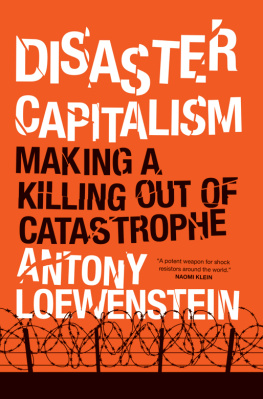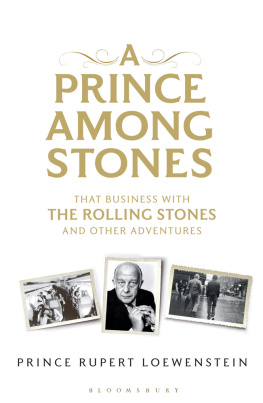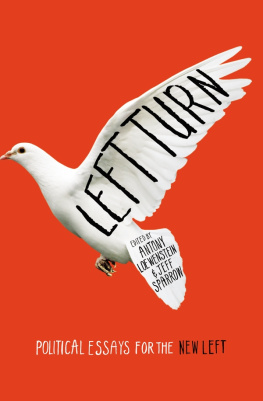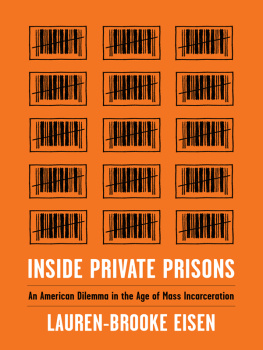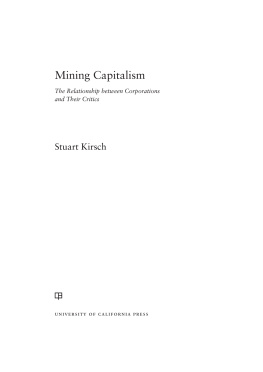Sometimes we win the skirmishes, but the war continues.
Rebecca Solnit, 2011
Back in 1972 Jrgen Randers, today the professor of climate strategy at the Norwegian Business School, published a book called The Limits to Growth. He warned of the devastating impact of population and economic growth on a world of limited resources. Revisiting that prognosis in a 2004 essay, he found that his predictions were correct and that global leaders had been much remiss in ignoring the urgent need to battle unsustainable development.
Randers key argument was a challenge to the inherent rules of capitalism. By 2015, he was pessimistic that the current financial order was capable ofor even had any interest inreducing the devastating effects of climate change. It is cost-effective to postpone global climate action, he wrote.
It is profitable to let the world go to hell. I believe that the tyranny of the short term will prevail over the decades to come. As a result, a number of long-term problems will not be solved, even if they could have been, and even as they cause gradually increasing difficulties for all voters.
To encourage a country such as Norway to tax every citizen, his suggested solution was for people to pay an extra 250 euros every year for a generation, thereby drastically cutting greenhouse gases and providing an example to other industrialized nations. The idea never got off the ground.
The capitalist system does not help, Randers explained.
Capitalism is carefully designed to allocate capital to the most profitable projects. And this is exactly what we dont need today. We need investments into more expensive wind and solar power, not into cheap coal and gas. The capitalistic market wont do this on its own. It needs different frame conditionsalternative prices or new regulation.
Although Randers pushed the worrying idea of enlightened dictatorshipfor a limited time period in critical policy areashis thesis strikes at the heart of why wealth is concentrated in so few hands in todays world: there is little incentive to advocate for a more equitable planet. The market system guarantees unfairness and rewards greed.
Such debates are starting to emerge even among the class who most benefits from such inequality. During the annual conference in Davos, Switzerland, in 2015, where the worlds business and political leaders gather to congratulate themselves, some sessions concluded that inequality was a serious problem facing the globe, and participants were pessimistic about solving it.
Such talk was a start, but hardly enough when the dictator Abdel Fattah al-Sisi, the Egyptian presidenta man responsible for the death of thousands of his own peoplewas warmly welcomed in Davos and allowed to pontificate about his vision for sustainable development. Human rights and economic freedom must not be mutually exclusive concepts.
The figures speak for themselves. The share of wealth in the US owned by its richest 0.01 percent has quadrupled since the eve of
The system is rigged. During the global financial crisis, Bank of America nearly crashed. One of the largest financial institutions in the nation, it was nevertheless granted 45 billion by President Barack Obama to prevent its collapse. Since then, Rolling Stone writer Matt Taibbi explains,
the Obama administration has looked the other way as the bank committed an astonishing variety of crimes ripp[ing] off almost everyone with whom it has a significant business relationship, cheating investors, insurers, depositors, homeowners, shareholders, pensioners and taxpayers. It brought tens of thousands of Americans to foreclosure court using bogus, robo-signed evidencea type of mass perjury that it helped pioneer. It hawked worthless mortgages to dozens of unions and state pension funds, draining them of hundreds of millions in value.
This is the modern definition of capitalism. As Taibbi told those attending an Occupy Wall Street day of action in 2012, this gigantic financial institution is the ultimate symbol of a new kind of corruption at the highest levels of American society: a tendency to marry the near-limitless power of the federal government with
It is an ideology that thrives despite guaranteeing social disharmony. The US model of reducing the role of government while increasing the influence of largely private power has never been so rapacious, though the problem is global. For-profit colleges burden students with huge debts and worthless credentials while receiving federal student aid. Goldman Sachs, a firm with a large measure of responsibility for the economic meltdown in 2008, now invests in social-impact bondsa system that enriches the company if former prisoners stay out of jail but reduces the accountability of governments and prioritizes private profit. The corporation also makes money from higher education, pressuring underprivileged students to take on debt while giving scant attention to the standard of teaching.
Republicans in Michigan have pushed for the privatization of public school teachers, using a skewed logic that advocates cutting public schools and selling off facilities at the lowest price. Many tolls operating on public roads and highways in the US service the bottom lines of local and multinational companies. Public libraries have been outsourced, reducing employee salaries or eliminating jobs.
In Europe, many corporations and lawyers shamelessly exploit international investment deals to derive profits from suing crisis-ridden nations. Market speculators pressurize fragile nations such as Greece, whose citizens are forced to survive with fewer public services.
The International Monetary Fund (IMF) traverses the world The World Bank is equally complicit and equally unaccountable. In 2015 it admitted that it had no idea how many people had been forced off their lands around the world due to its resettlement policies. The story barely made the news and no heads rolled.
One Californian town, Maywood, took the privatization memo a bit too seriously. It literally outsourced everything in 2010, sacking all municipal workers, including the police department, due to budgetary pressure. We will become 100 percent a contracted city, said Angela Spaccia, Maywoods interim city manager.
Decades of anti-government rhetoric claiming that taxpayer money is always wasted have convinced many voters that the corporation knows best, which is why a sustained campaign against predatory capitalism is so hard to keep upnot helped by the fact that 90 percent of Americans rely on information from media outlets owned by only six multinationals, including News Corporation, Comcast, and Viacom. Rupert Murdoch tried to acquire Time Warner in 2014; had he succeeded, the market would have shrunk even further. In this environment, the fact that movements such as Occupy are born and thrive, albeit briefly, is a remarkable achievement. Indian writer Arundhati Roy saluted the power of this movement in a speech at the Peoples University in New Yorks Washington Square Park in November 2011: What you have achieved is to introduce a new imagination, a new political language into the heart of empire. You have reintroduced the right to dream into a system that tried to turn everybody into zombies mesmerized into equating mindless consumerism with happiness and fulfillment.

